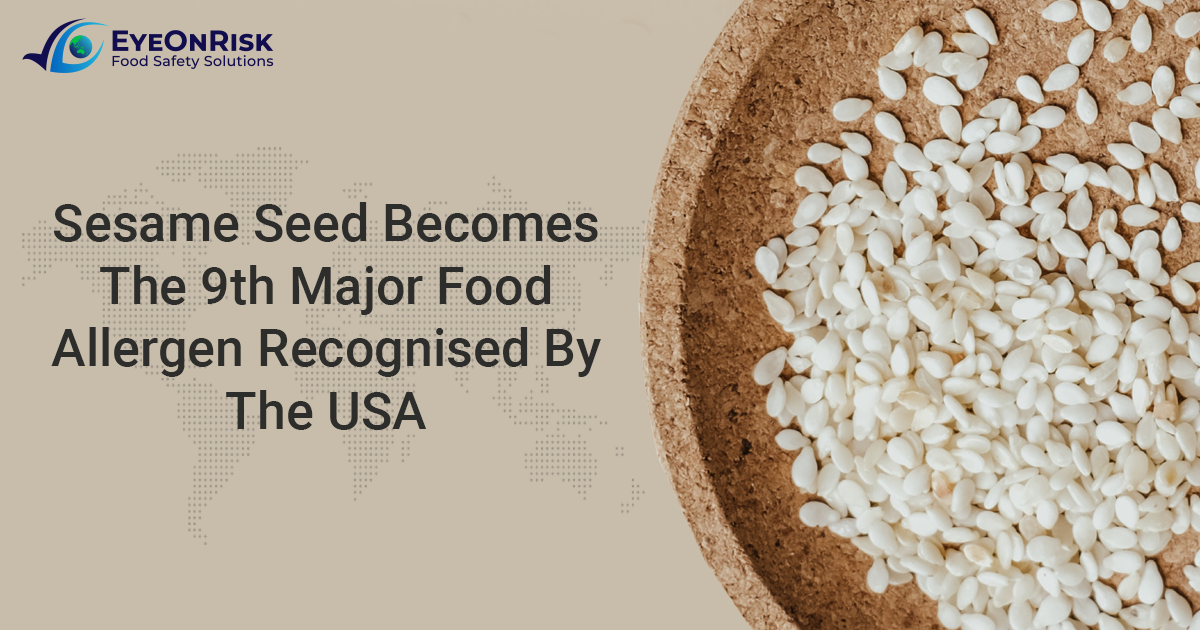Sesame Seed Becomes The 9th Major Food Allergen Recognised By The USA
26 Apr 2024

Millions of people are suffering from adverse reactions due to food allergens. Globally, 1 in 10 adults and 1 in 13 children suffer from food allergies. It results in some discomfort, but it can become fatal. Therefore, this article will reveal the secrets behind sesame seeds and why it has been considered the 9th major food allergen.
The Food Allergy Safety, Treatment, Education and Research Act, or the FASTER Act, was enacted in April 2021 and declared the sesame plant as the ninth food to be added to the US Food and Drug Administration's list of serious food allergens. As of now, people are only concerned about soy, gluten, and seafood products, now, people should take care of one of the readily used ingredients in Asian cuisine.
Although sesame seeds may not get as much attention as seafood or peanut allergies, they can nevertheless cause catastrophic reactions. In fact, Anaphylaxis can result from allergic responses to sesame seeds or sesame oil.
Why Do Sesame Seeds Cause Food Allergies?
The rise in the number of goods containing sesame seeds and sesame oil in recent years may be a serious reason for the increase in sesame allergies. Moreover, Sesame oil is a healthy cooking oil used in many Middle Eastern and Asian dishes, as well as several vegetarian foods, salad dressings etc.
When a person with a sesame allergy is exposed to such food, the proteins found in it attach to particular IgE antibodies that the individual's immune system has produced. After that, the person's immune system is triggered by this, resulting in response symptoms that might be modest or highly severe allergic reactions.
How To Diagnose These Disorders?
A response can be triggered by even a tiny quantity of sesame proteins. Items that frequently include sesame seeds or oil are among the following. These consist of things like hummus, sesame bagels, buns as well as:
- Crackers and chips
- Sauces, dressings, and dips from
- Local preparation from Asian, Mexican, and Mediterranean cuisine
Often, a food analysis is required to identify the sesame allergen. If you experience a reaction, record what you ate right before it happened. This will assist the emergency medical staff member to determine the best course of action.
Be cautious about symptoms.
A reaction to sesame products can be moderate or severe. Even if past responses were minor, a person could nonetheless experience a life-threatening reaction in future. Some common symptoms to be aware of are wheezing, vomiting, coughing, trouble breathing, itching, red spots, loss of consciousness and more.
For a significant reaction, an injection of epinephrine may be required. Usually, epinephrine can stop an anaphylactic reaction, but serious medical attention is needed in such situations. However, the FDA advises people with sesame allergies to be aware of the presence of allergens and to understand allergen labeling. This type of preventative action may save thousands of people suffering allergic reactions.